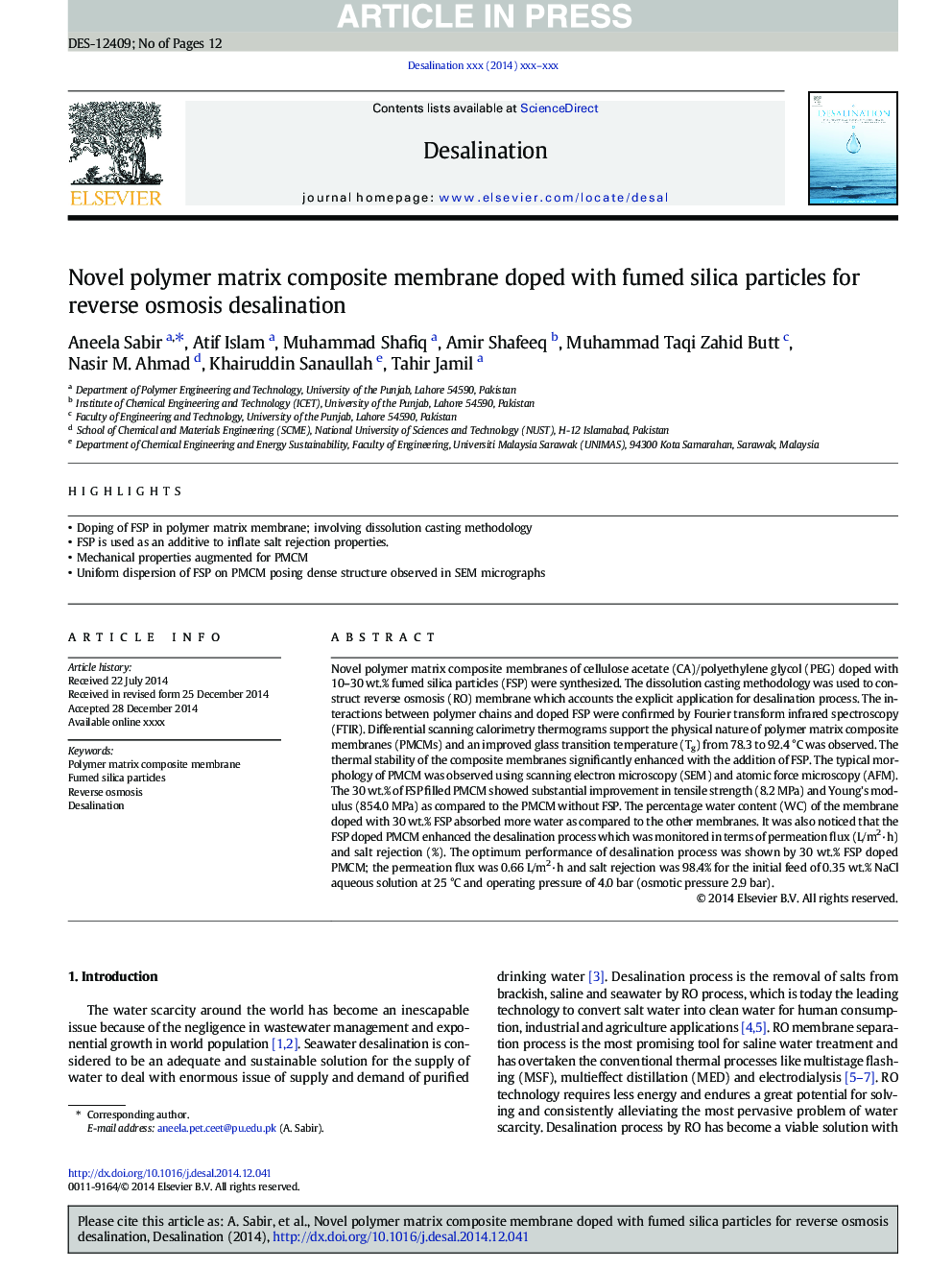| Article ID | Journal | Published Year | Pages | File Type |
|---|---|---|---|---|
| 7008288 | Desalination | 2015 | 12 Pages |
Abstract
Novel polymer matrix composite membranes of cellulose acetate (CA)/polyethylene glycol (PEG) doped with 10-30 wt.% fumed silica particles (FSP) were synthesized. The dissolution casting methodology was used to construct reverse osmosis (RO) membrane which accounts the explicit application for desalination process. The interactions between polymer chains and doped FSP were confirmed by Fourier transform infrared spectroscopy (FTIR). Differential scanning calorimetry thermograms support the physical nature of polymer matrix composite membranes (PMCMs) and an improved glass transition temperature (Tg) from 78.3 to 92.4 °C was observed. The thermal stability of the composite membranes significantly enhanced with the addition of FSP. The typical morphology of PMCM was observed using scanning electron microscopy (SEM) and atomic force microscopy (AFM). The 30 wt.% of FSP filled PMCM showed substantial improvement in tensile strength (8.2 MPa) and Young's modulus (854.0 MPa) as compared to the PMCM without FSP. The percentage water content (WC) of the membrane doped with 30 wt.% FSP absorbed more water as compared to the other membranes. It was also noticed that the FSP doped PMCM enhanced the desalination process which was monitored in terms of permeation flux (L/m2·h) and salt rejection (%). The optimum performance of desalination process was shown by 30 wt.% FSP doped PMCM; the permeation flux was 0.66 L/m2·h and salt rejection was 98.4% for the initial feed of 0.35 wt.% NaCl aqueous solution at 25 °C and operating pressure of 4.0 bar (osmotic pressure 2.9 bar).
Keywords
Related Topics
Physical Sciences and Engineering
Chemical Engineering
Filtration and Separation
Authors
Aneela Sabir, Atif Islam, Muhammad Shafiq, Amir Shafeeq, Muhammad Taqi Zahid Butt, Nasir M. Ahmad, Khairuddin Sanaullah, Tahir Jamil,
